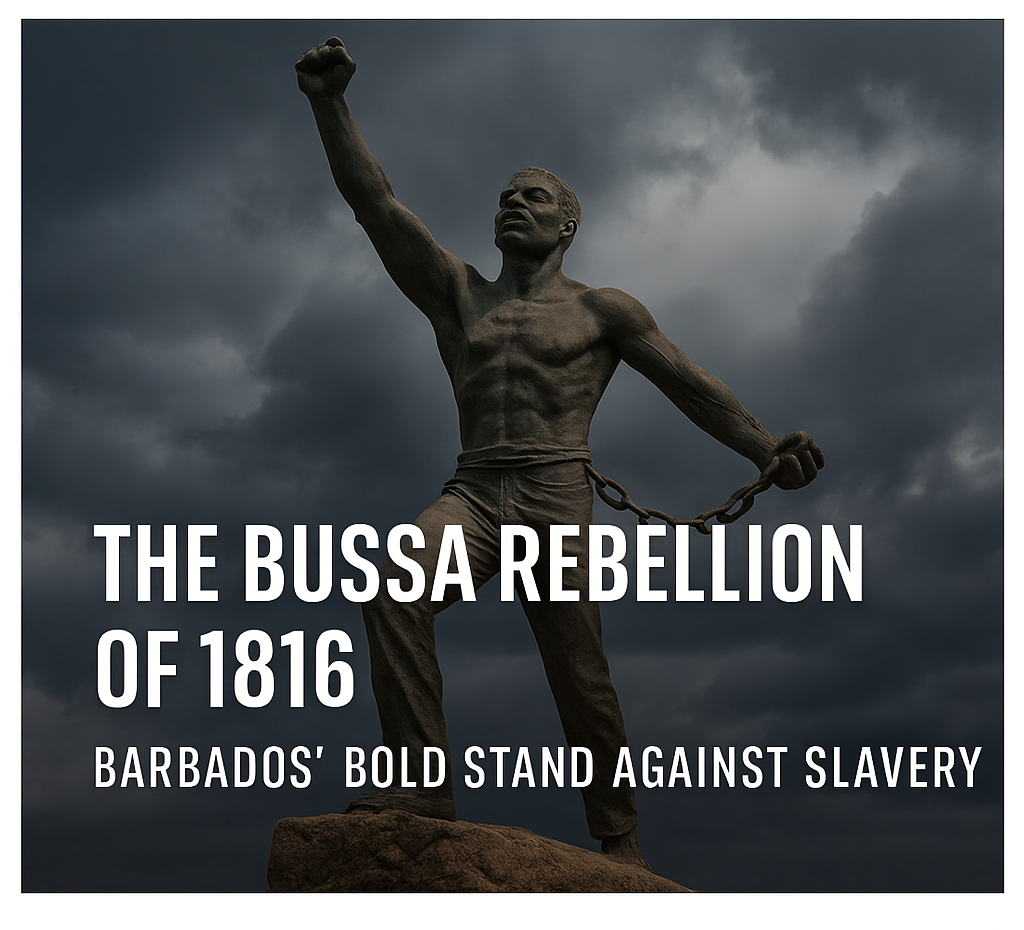In April 1816, the island of Barbados erupted in resistance. The Bussa Rebellion, one of the Caribbean’s largest slave uprisings, began in Saint Philip and spread quickly. It was led by Bussa, an enslaved African who remains a national hero.
Enslaved people had heard that Britain planned to abolish slavery. Plantation owners, however, refused to change. That betrayal sparked fury. Years of violence, labor, and broken promises boiled over into organized revolt.
On April 14, over 20,000 enslaved people took part. They set cane fields ablaze and attacked key plantations. Despite lacking weapons, the rebels moved with strategy and courage.
British troops responded fast. They crushed the rebellion in just a few days. About 1,000 people died during the uprising. Many others faced execution or exile. Bussa died in the battle, but his spirit lived on.
Though slavery in Barbados continued until 1834, this rebellion mattered. It sent a strong message to Britain and fueled the abolition movement.
Today, Barbados honors Bussa with a statue near Bridgetown. His bravery reminds us of the unshakable will to be free. The Bussa Rebellion is a cornerstone of Barbadian history—and a global symbol of resistance.
